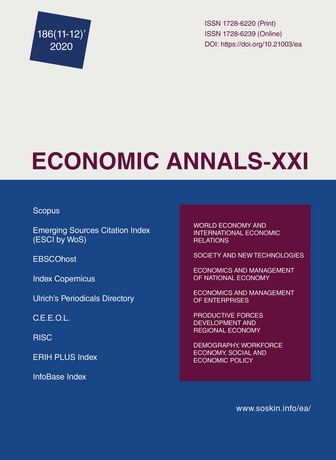Digital technologies in the Russians’ everyday life: analysis based on the opinion surveys
Digital technologies in the Russians’ everyday life: analysis based on the opinion surveys
Author(s): Evgeny KamenskySubject(s): Economy, ICT Information and Communications Technologies
Published by: Institute of Society Transformation
Keywords: Industry 4.0; Digital Technology; Public Opinion; Social and Technical Landscape; Technological Progress; Social Changes;
Summary/Abstract: Recently, the global COVID-19 pandemic has become the most topical matter of public consciousness. In this regard, digitalization, which offers the so called remote models of social communications, is becoming the most topical issue not only among the expert community of politicians, economists, scientists and public figures, but also among ordinary people. The global pandemic has determined both the speed and the global networked nature of the spread of the digital environment in national sociocultural contexts. This determines the special relevance of the problems of professional assessment of the digital environment in the mass consciousness of the Russians. The imperative digitalization of basic social institutions, such as medicine and education, requires the consumer to activate adaptive-compensatory reserves, master new forms of communication and interaction as well as a reflexive response. Basing on the carried out sociological empirical studies (mass surveys of the population), the article presents the results which allow us to see the current state of public reflection on digitalization against the background of the COVID-19 pandemic in 2020, to objectively describe the subjective assessments of the spread of the DT culture thinking patterns and practices in the socio-cultural environment of Russia. As a result, it has been revealed that in all institutional practices, except for family ones, the respondents agree with the need to promote the implementation of digital technologies. The respondents did not demonstrate a high level of negativity or put forward proposals to significantly limit digitalization for all the questionnaire items. At this stage, it can be argued with a certain degree of certainty that digitalization patterns are translated in the context of the reproduction of sociocultural relations for which they have become typical.
Journal: Економічний часопис - ХХІ
- Issue Year: 186/2020
- Issue No: 11-12
- Page Range: 134-142
- Page Count: 9
- Language: English

